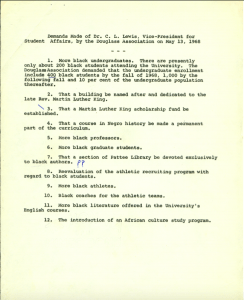In 1870, one hundred and fifty years ago, Congress ratified the Fifteenth Amendment to the United States Constitution allowing African American men to be elected or appointed to national, state, county, and local offices throughout the United States. One hundred years ago, African American women won the vote although it would be years before many could exercise that right. In celebrating these milestones, and recognizing that there is more to be done to ensure equal representation, “A Mighty Long Way”: Black Representation in American Politics showcases books and documents that highlight some of the numerous African Americans who have been in office and have made an impact on the political system.
The title is inspired by Carlotta Walls LaNier’s memoir A Mighty Long Way about a Black girl growing up in Little Rock, Arkansas during the time of racial segregation. LaNier was one of the “Little Rock Nine,” African American students who in 1957 were denied entry to a racially segregated school. The Little Rock crisis occurred three years after the U.S. Supreme Court decision in Brown v. Board of Education (1954) declared segregation in public schools unconstitutional.
When a book is available to Penn State readers as a book or ebook in the circulating collection, we have provided a link. Most of the materials are from The Charles L. Blockson Collection of African Americana and the African Diaspora at Penn State Libraries, part of the Eberly Family Special Collections at Penn State Libraries. The collection is located on the 3rd Floor of West Pattee and is currently closed to the public because of the COVID-19 pandemic. We are happy to facilitate access through scanning and/or virtual appointments. Please visit our website for how to get in touch.



















